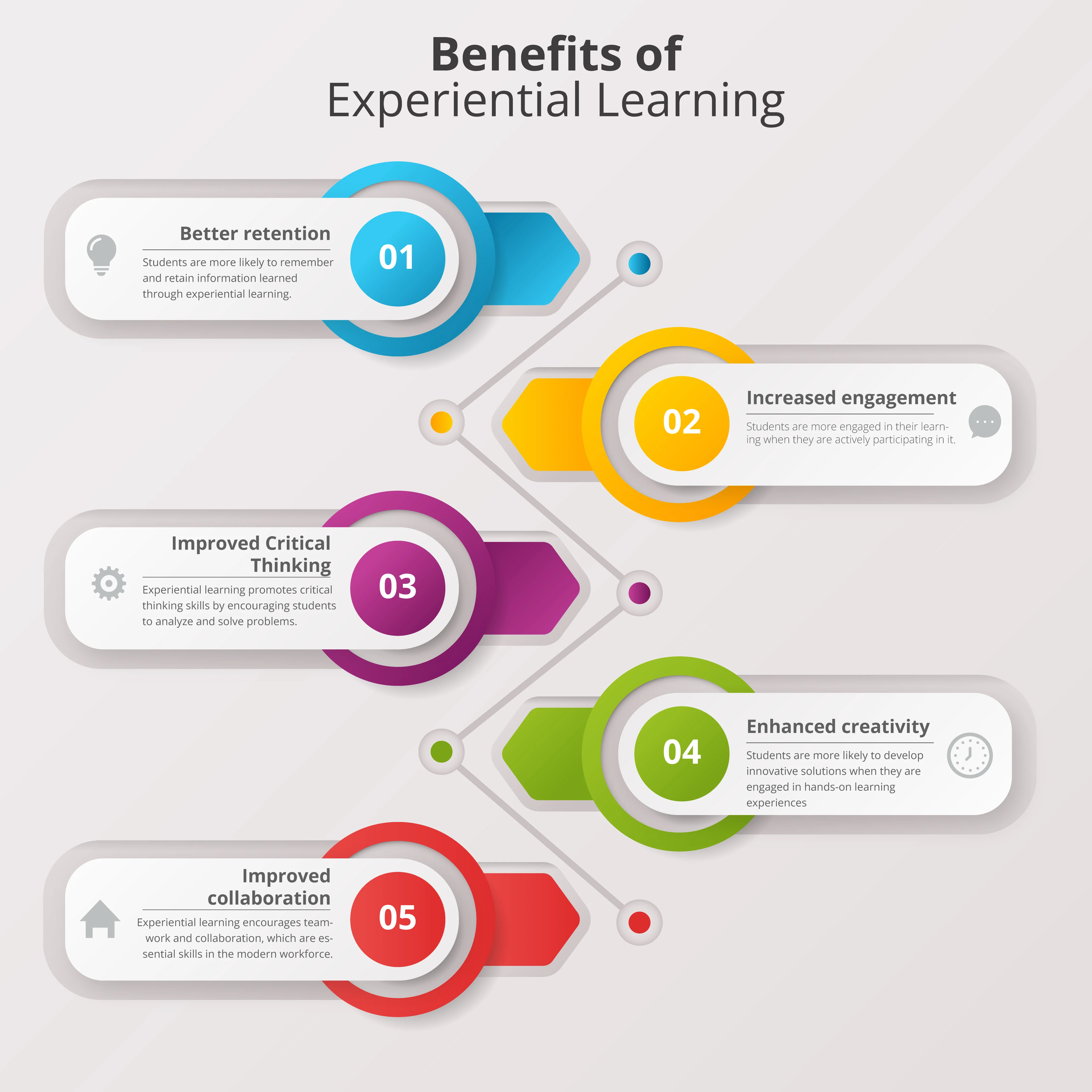
- Student Zone
-
Student Growth serves as a space for students, K-12 educators, parents and school professionals.
Experiential learning is a hands-on, interactive approach to learning that focuses on practical, real-world experiences. Unlike traditional classroom learning, where students are taught through lectures, experiential learning encourages students to learn by doing and actively engaging with the material. In this blog, we will explore the impact of experiential learning on CBSE exam scores, its objectives, importance, benefits, and usage in different points, as well as how Entab's experiential learning assets can help students and schools.

Objectives of Experiential Learning
The primary objective of experiential learning is to help students gain a deeper understanding of the subject matter by engaging them in practical, hands-on experiences. This approach to learning is designed to promote critical thinking, problem-solving, creativity, and collaboration. It also aims to help students develop skills that are essential for success in the 21st-century workforce, such as adaptability, communication, and teamwork.
Importance of Experiential Learning
Experiential learning is an essential tool for enhancing student engagement, motivation, and performance. By providing students with meaningful and authentic learning experiences, teachers can help students develop a deeper understanding of the material and retain it better. Experiential learning also helps students to connect with the real world and apply their learning to real-life situations.

Benefits of Experiential Learning
Experiential learning has many benefits for students, including:
Better retention: Students are more likely to remember and retain information learned through experiential learning.
Increased engagement: Students are more engaged in their learning when they are actively participating in it.
Improved critical thinking: Experiential learning promotes critical thinking skills by encouraging students to analyze and solve problems.
Enhanced creativity: Students are more likely to develop innovative solutions when they are engaged in hands-on learning experiences.
Improved collaboration: Experiential learning encourages teamwork and collaboration, which are essential skills in the modern workforce.
Usage of Experiential Learning in Different Points
Experiential learning can be used in different points of the learning process, such as:
Introduction: Teachers can use experiential learning to introduce a new concept to students by engaging them in an activity that demonstrates the concept.
Reinforcement: Experiential learning can be used to reinforce previously learned concepts by providing students with an opportunity to apply their knowledge in a practical setting.
Assessment: Teachers can use experiential learning as a form of assessment by evaluating how well students are able to apply their knowledge in a real-world situation.
Skill development: Experiential learning can be used to develop specific skills, such as communication, collaboration, and problem-solving.
Entab's Experiential Learning Assets
Entab provides a range of experiential learning assets that can help students and schools to incorporate experiential learning into their curriculum. These assets include:
Virtual labs: Entab's virtual labs provide students with a safe and cost-effective way to engage in hands-on learning experiences.
Digital simulations: Entab's digital simulations allow students to explore complex concepts and systems in a safe and controlled environment.
Interactive videos: Entab's interactive videos provide students with an engaging and interactive way to learn new concepts.
Gamified learning: Entab's gamified learning solutions provide students with a fun and engaging way to learn new skills and concepts.
Conclusion
Experiential learning is an effective approach to learning that can help students develop critical thinking, problem-solving, creativity, and collaboration skills. It has many benefits, including better retention, increased engagement, improved critical thinking, enhanced creativity, and improved collaboration. With Entab's experiential learning assets, schools and students can incorporate experiential learning into their curriculum and take advantage of the benefits it offers. Entab's digital tools provide a safe, cost-effective, and engaging way for students to participate in hands-on learning experiences that reinforce their understanding of academic concepts.
Moreover, Entab's experiential learning assets are designed to align with the CBSE curriculum, ensuring that students receive a comprehensive education that meets national standards. The assets include virtual labs, digital simulations, interactive videos, and gamified learning solutions that cater to the different learning styles of students and promote deeper engagement with the material.
By integrating Entab's experiential learning assets into their teaching, educators can transform their classrooms into interactive and dynamic learning environments that engage students and foster a lifelong love of learning. Furthermore, students can develop the skills they need to succeed in the 21st-century workforce, such as adaptability, communication, collaboration, and critical thinking.
In conclusion, experiential learning has a significant impact on CBSE exam scores by promoting deeper understanding, active engagement, and skill development. Entab's experiential learning assets can help schools and students to reap the benefits of experiential learning and prepare for success in the future.